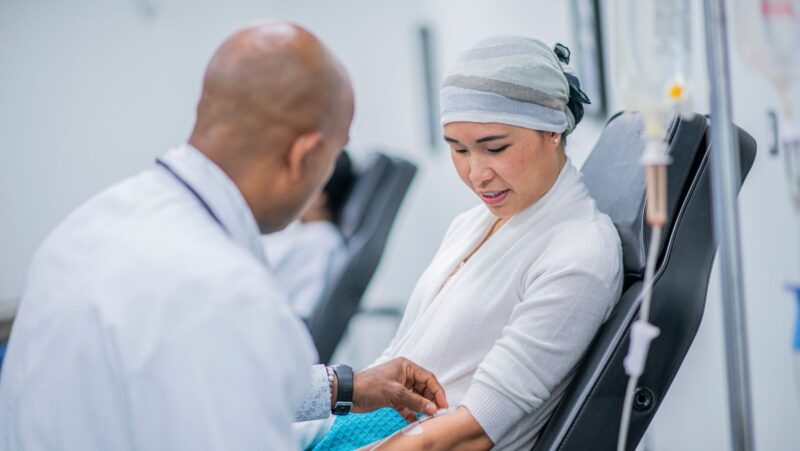
A health science associate degree opens doors to numerous career opportunities in the growing healthcare industry. This versatile qualification equips students with fundamental knowledge in anatomy, medical terminology and healthcare systems while providing a solid foundation for entry-level positions or further education.
Healthcare remains one of America’s fastest-growing job sectors with promising career prospects and competitive salaries. Graduates with an associate degree in health science can pursue roles as medical assistants, pharmacy technicians, dental hygienists or healthcare administrators. They’ll find positions in various settings including hospitals, clinics, research facilities and private practices.
What Can you do with a Health Science Associate Degree
A health science associate degree combines foundational healthcare knowledge with practical skills development. This two-year program encompasses core subjects including human anatomy, medical terminology, healthcare ethics, biology and chemistry.
Program Structure
- Core healthcare courses focus on patient care fundamentals
- Laboratory sessions provide hands-on clinical experience
- General education requirements include English composition math statistics
- Professional development courses cover healthcare communication medical ethics
Key Skills Developed
- Medical terminology interpretation
- Basic patient assessment techniques
- Healthcare technology operation
- Clinical documentation practices
- Laboratory safety protocols
Program Requirements
| Component | Credit Hours |
|---|---|
| Core Courses | 30-35 |
| General Education | 20-25 |
| Clinical Experience | 5-10 |
| Total Credits | 60-65 |
Learning Formats
- Traditional on-campus classes with hands-on labs
- Hybrid programs combining online remote learning
- Evening weekend courses for working students
- Accelerated completion options in 18 months
- Supervised training in healthcare settings
- Direct patient interaction opportunities
- Equipment operation practice
- Real-world application of classroom concepts
- Professional networking connections
The curriculum emphasizes both theoretical knowledge practical application preparing graduates for immediate entry into healthcare roles or continued education in specialized programs.
Career Opportunities in Clinical Settings
Clinical settings offer numerous entry-level positions for health science associate degree holders. These roles provide direct patient care experience while offering competitive salaries and advancement opportunities.
Medical Assistant Roles
Medical assistants perform essential clinical tasks in healthcare facilities including:
- Recording vital signs like blood pressure temperature heart rate
- Preparing examination rooms with sterile equipment supplies
- Administering medications under physician supervision
- Collecting laboratory specimens following protocol guidelines
- Maintaining electronic health records documentation
- Scheduling patient appointments coordinating referrals
- Assisting physicians during medical procedures examinations
Average starting salaries for medical assistants range from $35,000 to $42,000 annually, with experienced professionals earning up to $48,000.
Patient Care Technician Positions
Patient Care Technicians (PCTs) serve as direct caregivers in hospitals nursing homes rehabilitation centers. Their primary responsibilities include:
- Monitoring patients’ vital signs reporting changes
- Assisting with daily living activities bathing feeding mobility
- Collecting specimens for laboratory testing
- Operating medical equipment following safety protocols
- Changing wound dressings maintaining sterile conditions
- Responding to patient call signals emergencies
- Supporting registered nurses with patient assessments
Entry-level PCT positions typically offer annual salaries between $32,000 and $38,000, with opportunities for advancement through additional certifications.
| Position | Starting Salary | Experienced Salary |
|---|---|---|
| Medical Assistant | $35,000 | $48,000 |
| Patient Care Technician | $32,000 | $38,000 |
Administrative Healthcare Careers
Administrative healthcare positions form a crucial component of the healthcare industry, offering health science associate degree holders opportunities to work behind the scenes in medical facilities. These roles combine healthcare knowledge with business operations skills.
Medical Records and Billing
Medical records specialists maintain patient health information systems while medical billing professionals process insurance claims and payments. Entry-level positions in this field start at $38,000-$45,000 annually, with experienced professionals earning up to $60,000. Key responsibilities include:
- Organizing patient medical histories in electronic health record systems
- Coding diagnoses and procedures using ICD-10 and CPT systems
- Processing insurance claims and managing payment cycles
- Ensuring compliance with HIPAA regulations
- Auditing medical records for accuracy and completeness
- Supervising administrative staff and coordinating schedules
- Managing facility budgets and financial records
- Implementing office policies and procedures
- Coordinating with insurance companies and vendors
- Maintaining medical supply inventory
- Organizing staff training and development programs
| Position | Entry-Level Salary Range | Experience Level Required |
|---|---|---|
| Medical Records Specialist | $38,000-$45,000 | 0-2 years |
| Medical Billing Professional | $40,000-$48,000 | 0-2 years |
| Healthcare Office Manager | $42,000-$55,000 | 2-3 years |
Public Health and Community Roles
Health science associate degree holders excel in public health positions focused on community wellness education programs. These roles combine healthcare knowledge with outreach skills to improve population health outcomes.
Health Education Coordinator
Health Education Coordinators develop educational programs to promote healthy behaviors in communities. They create materials about nutrition, disease prevention, exercise habits for diverse populations including schools, workplaces, healthcare facilities. The position offers an entry-level salary range of $38,000-$45,000 with opportunities for advancement through experience certification.
Key responsibilities:
- Designs health promotion campaigns targeting specific community needs
- Creates educational materials in multiple formats (print, digital, presentations)
- Coordinates workshops seminars on health-related topics
- Tracks program metrics evaluates effectiveness of initiatives
- Partners with local organizations to expand outreach efforts
Community Health Worker
Community Health Workers serve as liaisons between healthcare systems underserved populations. They provide basic health education screenings while helping community members access appropriate medical services, with starting salaries between $35,000-$42,000 annually.
- Conducts health screenings blood pressure checks diabetes monitoring
- Connects residents to local healthcare resources services
- Provides translation services for non-English speaking clients:
- Provides medical document translation services for non-English speaking clients
- Maintains records of client interactions outcomes
- Organizes community health fairs outreach events
- Assists with healthcare system navigation insurance enrollment
| Role | Starting Salary Range | Key Requirements |
|---|---|---|
| Health Education Coordinator | $38,000-$45,000 | Associate Degree + Health Education Certificate |
| Community Health Worker | $35,000-$42,000 | Associate Degree + Cultural Competency Training |
Career Advancement Pathways
A health science associate degree creates multiple pathways for career advancement through additional education programs. These opportunities include seamless transitions to higher degrees specialized certifications.
Bachelor’s Degree Bridge Programs
Bridge programs connect associate degree holders to bachelor’s degree completion in 18-24 months. Top transfer pathways include:
- Healthcare Administration programs focusing on management roles in medical facilities
- Public Health programs emphasizing population health strategies
- Health Information Management programs specializing in medical data systems
- Nursing (BSN) programs for clinical practice advancement with 60 transfer credits
- Allied Health programs developing expertise in specialized therapeutic services
The programs typically accept 60-65 transfer credits from the associate degree reducing both time cost for bachelor’s completion.
Professional Certifications
Professional certifications enhance specialized skills expanding career options within 3-12 months:
- Certified Clinical Medical Assistant (CCMA) requiring 160 clinical hours
- Registered Health Information Technician (RHIT) focusing on medical records
- Certified Patient Care Technician (CPCT) requiring 100 clinical hours
- Certified Pharmacy Technician (CPhT) with 240 training hours
- Medical Billing Specialist (CBCS) requiring 80 training hours
| Certification | Training Hours | Average Salary Increase |
|---|---|---|
| CCMA | 160 | $4,500 |
| RHIT | 200 | $6,000 |
| CPCT | 100 | $3,800 |
| CPhT | 240 | $5,200 |
| CBCS | 80 | $3,500 |
Each certification requires completing specific coursework passing standardized exams maintaining continuing education credits for renewal.
Salary and Job Outlook
Health science associate degree holders earn competitive salaries across various healthcare roles. Entry-level positions offer the following compensation ranges:
| Position | Entry-Level Salary Range | Experienced Salary Range |
|---|---|---|
| Medical Assistant | $35,000 – $42,000 | $45,000 – $55,000 |
| Patient Care Technician | $32,000 – $38,000 | $42,000 – $50,000 |
| Medical Records Specialist | $38,000 – $48,000 | $50,000 – $60,000 |
| Health Education Coordinator | $38,000 – $45,000 | $48,000 – $58,000 |
| Community Health Worker | $35,000 – $42,000 | $45,000 – $52,000 |
The U.S. Bureau of Labor Statistics projects significant growth in healthcare occupations from 2022 to 2032:
| Healthcare Sector | Projected Growth Rate |
|---|---|
| Medical Assistants | 14% |
| Healthcare Support | 16% |
| Medical Records | 8% |
| Community Health | 12% |
Geographic location impacts salary potential, with metropolitan areas offering higher compensation:
| Metropolitan Area | Salary Premium |
|---|---|
| New York City | +25% |
| San Francisco | +30% |
| Boston | +20% |
| Chicago | +15% |
| Los Angeles | +22% |
- Medical insurance coverage
- Dental vision plans
- Retirement savings programs
- Paid time off
- Professional development funds
- Tuition reimbursement options
- Career advancement opportunities
Job Growth Projections
A health science associate degree opens doors to numerous rewarding career paths in healthcare. From clinical roles to administrative positions and community health work the degree provides a solid foundation for both immediate employment and future advancement.
The combination of competitive salaries strong job growth projections and extensive opportunities for professional development makes this degree an excellent choice for those interested in healthcare careers. Whether graduates choose to enter the workforce directly or pursue further education they’ll find themselves well-prepared for success in this dynamic and expanding field.
The healthcare industry continues to grow making this versatile degree a smart investment in one’s future. With various specialization options and clear advancement pathways graduates can build meaningful careers while making significant contributions to community health and patient care.













